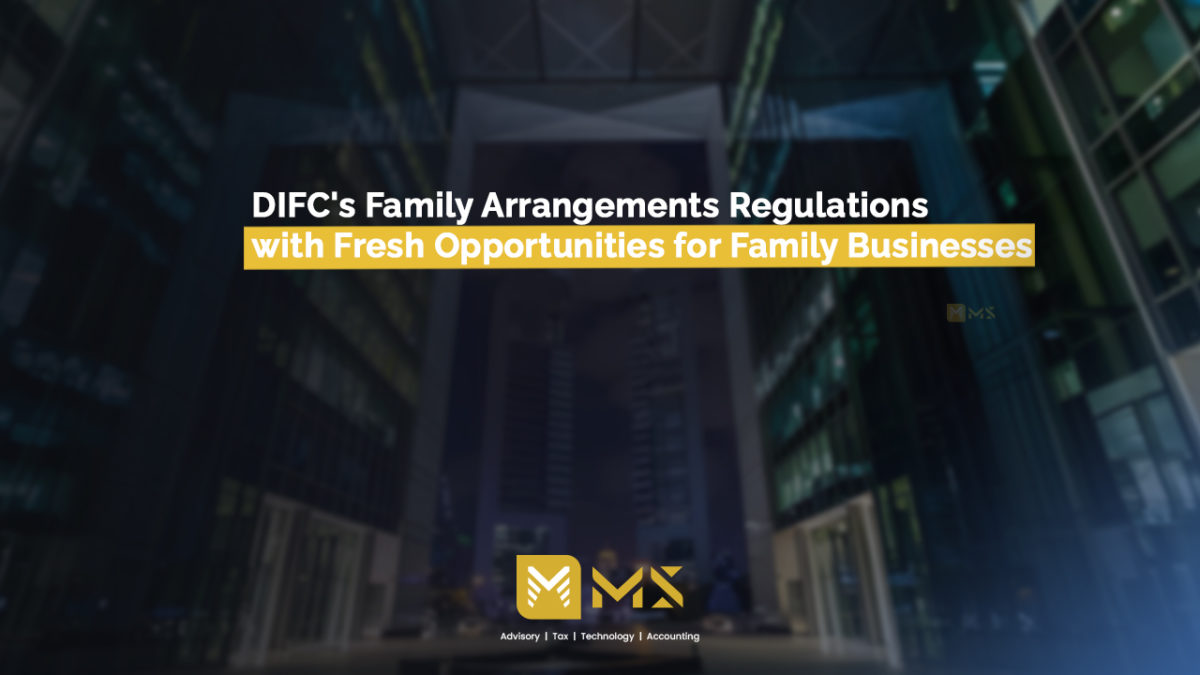The business landscape in the United Arab Emirates (UAE) is witnessing a profound transformation with the enactment of the DIFC Family Arrangements Regulations. This regulatory evolution, effective from January 31, 2023, marked a decisive shift from the Single-Family Office (SFO) regime of Dubai International Financial Centre (DIFC), aligning seamlessly with the recently introduced UAE Family Business Law.
The Regulations replace the prior DIFC Single Family Office system, which underwent several rounds of consultation since its inception. This change aims to meet the requirements of an increasing number of local and global family enterprises seeking to set up operations in the DIFC. The Regulations follow the recent enactment of UAE Decree-Law No. 37 of 2022 (UAE Family Business Law), which applies to all regions of the UAE, including the DIFC, as long as it does not contradict the legal provisions of that particular jurisdiction.
Let’s dive into elements of the DIFC Family Arrangements Regulation.
Simplified Registration Process:
Noteworthy is the simplification of the registration process for this. Family Offices are no longer bound to register as Designated Non-Financial Businesses or Professions (DNFBP) with the Dubai Financial Services Authority (DFSA). However, it is nuanced for multifamily offices, necessitating DFSA authorization and licensing for those engaging in financial services for multiple families.
Certification and Accreditation Programs:
Recognizing the unique needs of family businesses, the DIFC introduces certification and accreditation programs. These programs are designed to fortify the support system for family businesses and their advisors, aligning with the overarching goals of the UAE Family Business Law.
Flexibility for Single Families:
The regulations extend a degree of flexibility for Single Families, allowing Family Entities or Family Offices to operate beyond the DIFC’s jurisdiction. This flexibility is contingent upon demonstrating a substantial presence in the UAE and appointing a Corporate Service Provider as a registered agent in the DIFC.
Confidentiality at the Forefront:
The DIFC maintains a special register of Family Businesses, offering a private repository for sensitive information, shielding it from public disclosure. This move underscores a commitment to safeguarding the proprietary details of family businesses with the utmost confidentiality.
Licensing Requirements and Minimum Net Asset:
To be licensed as a Family Office, entities must meet specific criteria. Submission of relevant documentation and maintaining a minimum net asset requirement of USD 50 million are central to the licensing process. The assessment of net assets can be determined through fair market value or, alternatively, a book value assessment.
Alternative Dispute Resolution (ADR):
The regulations lay a strong foundation for Alternative Dispute Resolution (ADR) within Family Structures. This provision allows for arbitration to resolve disputes, aligning with the UAE Family Business Law’s emphasis on establishing committees in each Emirate to oversee family business disputes.
The DIFC Family Arrangements Regulations emerge not merely as a legal framework but as a commitment by the DIFC to nurture the growth and success of family businesses in the region. As the DIFC launches the Global Family Business and Private Family Wealth Centre, it underscores its dedication to providing unparalleled support for family businesses, ultra-high net worth individuals, and private wealth offices operating within its jurisdiction. These regulations set the stage for a more transparent, flexible, and supportive environment, reflecting the evolving needs of family businesses in the dynamic landscape of the DIFC.
To explore more about the vibrant DIFC community and its latest happenings, please check our insights page.
